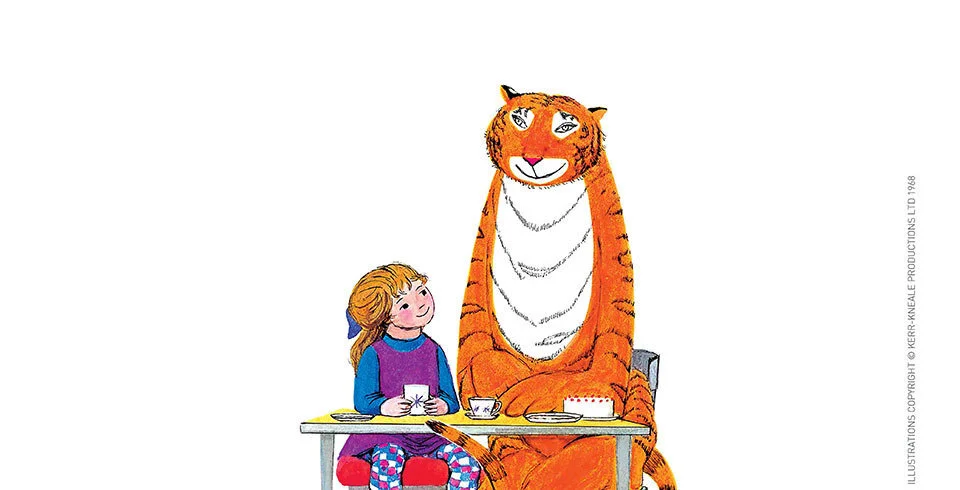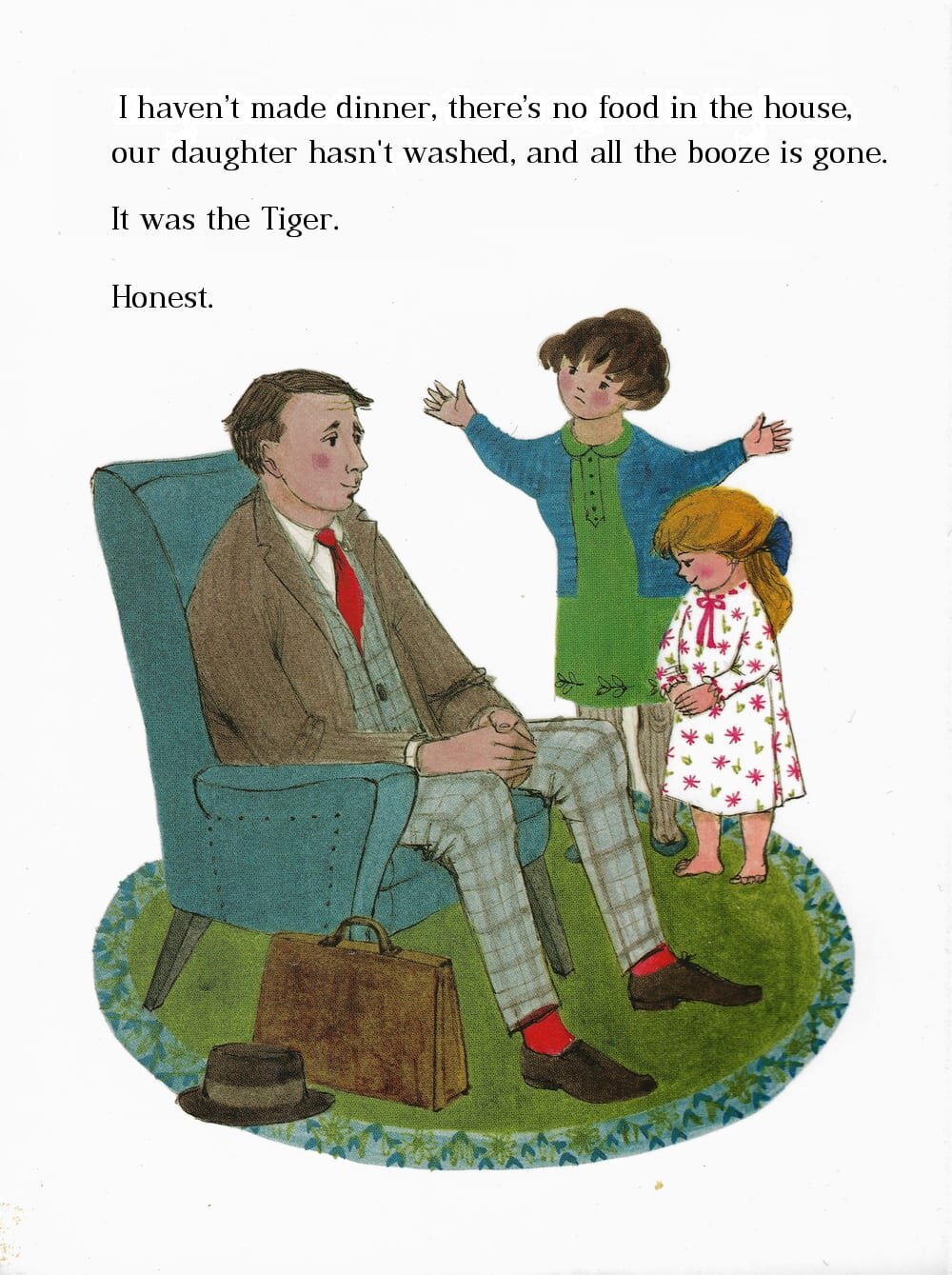The (possible) meanings behind ‘The Tiger Who Came To Tea’
Learning ‘The Tiger Who Came To Tea’ for baby sign, has reignited my love and fascination with this book! It was written in 1968 and is still one of the most loved books for children now - how incredible!
You can watch my baby sign version from 25.51 minutes here. And you can buy this amazing book here.
So it is more than a children’s story?
I knew there was a deeper meaning to the story but wasn’t sure on the detail so thought I’d pull them together in case you wanted to have your minds blown too!
Firstly though, this is brilliant!
So, is the story really about feminism?
Newsnight presenter, Emily Maitlis, asked Judith Kerr if the story was an allegory for the 1960s sexual revolution “where normal mores and suburban life became up-ended by this wild and exotic animal”. Kerr’s response really made me laugh:
“No. It was just about a tiger coming to tea.”
Emily Maitlis is ME - over analysing and worrying about everything people say and do when really there is nothing more to it!
Was the story really about Kerr’s experience of the Second World War?
Kerr grew up in pre-World War Two Berlin. Her parents realised the impending threat from Hitler and Nazi Germany, and publicly criticised the regime.
Judith Kerr as a child with her parents and her brother - thought to be taken in 1926.
By 1932, her father, Alfred Kerr, was on a Nazi death list and time was running out for the family. They fled Germany in 1933 but the threat remained.
For this reason, children's author Michael Rosen says metaphorically the tiger in Kerr's children's book could be interpreted as a vision from her past - an underlying threat, robbing the family of everything they own and disrupting the comforting routine of a young child's daily life.
"Judith knows about dangerous people who come to your house and take people away. She was told as a young child that her father could be grabbed at any moment by either the Gestapo or the SS - he was in great danger.
"So I don't know whether Judith did it consciously or not - I wouldn't want to go there - but the point is he's a jokey tiger, but he is a tiger," says Rosen.
Although the author herself always denied this and insisted it was just a children’s bedtime story she made up for her two year old daughter.
Reading it in today’s context of lockdown…
Reading Michael Rosen’s interpretation made me think about the current situation we are all in as COVID-19 dominates our lives. It is something we weren’t prepared for, suddenly turning up and entering our lives, taking the food and drink from us (i.e. how difficult it still is to get certain foods, and all those empty shelves in supermarkets we’ve been witnessing)
Stopping our normal routines (like Sophie being unable to take her evening bath). All normal routines have been thrown out the window at the moment!
Before (hopefully) disappearing from our lives and, as the last page of the book says, never returning again.
One last brilliant thing to come from this book…
This looks super cool too. A hand-drawn animated film of the book released last year - with an all star cast. Robbie Williams has done the really happy, fun soundtrack - Robbie at his very BEST! (listen HERE - you’ll want to dance for sure!)
You can download the film from Amazon for £1.99 - I watched it with Etta and we both loved it. It’s not very often (if ever before?!) we’ve sat down and BOTH enjoyed something so much!
But if you want the classic book, it can be bought here













